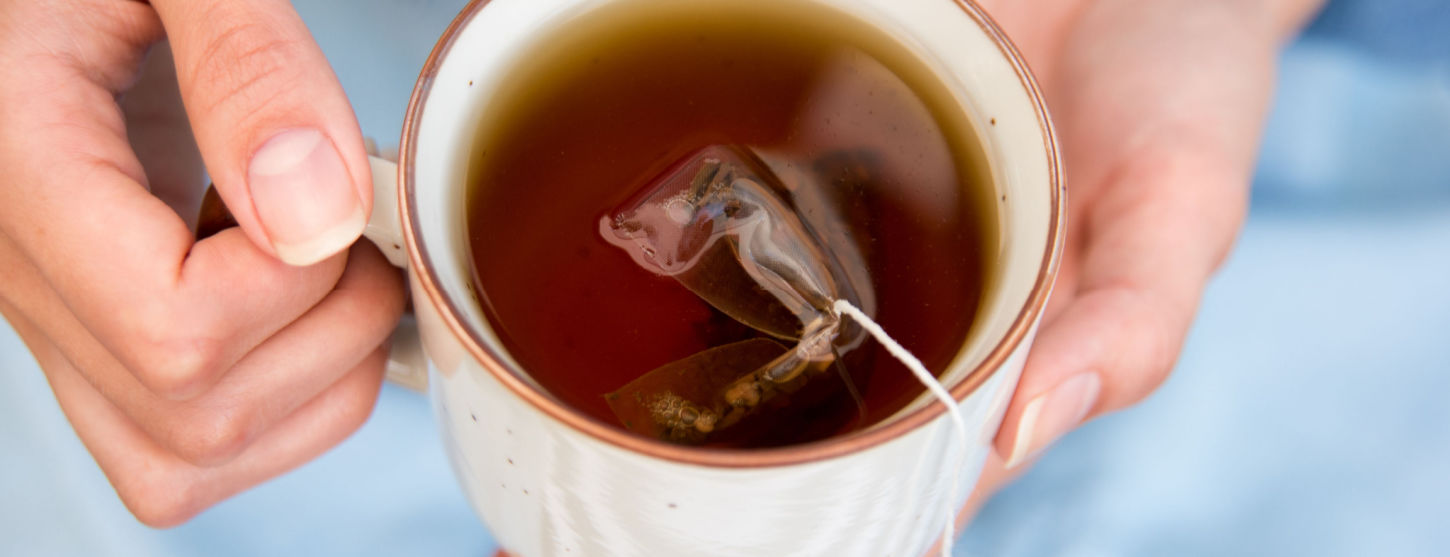15% off £25 OR 20% off £35
Code:OFFER
Insomnia guide: symptoms, causes & treatments

What is insomnia? And what causes it to happen? With multiple different types of insomnia, learn the best treatment options and why it occurs from our guide.
Summary
1How does insomnia affect everyday life?
If you have trouble sleeping at night, you will probably feel drowsy and irritable the next day. Occasional episodes of insomnia are unlikely to...
2Are there different types of insomnia?
Many people experience insomnia at different points in their lives, but it can affect some for months or years. Finding out which type of insomnia...
311 lifestyle changes to help you sleep
If you’re coping with long-term insomnia, we’ve rounded up some tips to help you, along with guidance on when to see your GP. Making changes to...
If you have difficulty sleeping, experience broken sleep every night or find yourself not sleeping at all, you could be experiencing insomnia.
Trouble sleeping at night is a widespread issue for many people. Believe it or not, it’s thought to affect over a third of Brits at some point in their lives- and there are multiple types of insomnia you can suffer from.1
From insomnia symptoms, causes and treatment to all about the different types of insomnia, read on to find out more about this common sleep disorder.
What is insomnia?
The word insomnia comes from the Latin words for no, ‘in’ and sleep ‘somnus’, ‘insomnus’.2
People with insomnia struggle with falling and staying asleep or, in some cases, may find themselves not sleeping at all. Insomnia is also when people wake up frequently throughout the night and have trouble getting back to sleep.
Those with insomnia often wake up feeling tired, even if they’ve had enough time to sleep.
How does insomnia affect everyday life?

If you have trouble sleeping at night, you will probably feel drowsy and irritable the next day. Occasional episodes of insomnia are unlikely to have any long-lasting consequences.
But over time, lack of sleep caused by persistent insomnia can affect overall health, energy levels, concentration, and mood.
9 insomnia symptoms
Some of the most common insomnia symptoms include:
- Feeling tired
- Feeling irritable
- Lacking in concentration
- Difficulty falling asleep
- Lying awake at night
- Broken sleep every night
- Feeling tired after waking up
- Not being able to nap, even though you’re tired
Are there different types of insomnia?
Many people may experience insomnia at different points in their lives, but it can affect some for months or years.
Finding out which type of insomnia you have can be very helpful in tackling it; here are 4 of the most common types of insomnia:
Short-term episodes of disturbed sleep are known as acute insomnia, often lasting from one night to several weeks.
It’s the most common type of insomnia and often includes difficulty falling and staying asleep, waking up too early and feeling ‘unrefreshed’ the following day.
Those with acute insomnia can often find it difficult to concentrate, think and regulate their mood. It’s sometimes also called ‘adjustment insomnia’, which is usually caused by stressful events or a change in environment.
Some common acute insomnia causes include:
- Jet lag
- Hot or cold nights
- Bright lights
- Loud noise
- New school/job
- Work deadlines
- Death of family or friend
- Pain/physical discomfort
- Some medications
Extended periods of insomnia are referred to as chronic insomnia, which is when someone has insomnia at least three nights a week for over a month.
Those who experience chronic insomnia may sometimes struggle to concentrate, focus, or even remember things the next day. In more serious cases, those with chronic insomnia might be more likely to develop depression and anxiety.4
There isn’t a set definition of behavioural insomnia of childhood (BIC), but problems like struggling to fall asleep independently or waking up frequently at night are common.
These sleep problems tend to come from the child having negative feelings towards sleep, which can contribute to their struggle to fall asleep and wake up at night.
The most common treatments are behavioural interventions, e.g., establishing routines, teaching relaxation, learning self-soothing skills and positive associations with sleep.5
Sleep maintenance insomnia is when you find yourself struggling to stay asleep or waking up too early and struggling to get back to sleep.
Some sleep maintenance insomnia causes include medical concerns like depression and anxiety, but you might find yourself experiencing maintenance insomnia when you’re stressed.
What causes insomnia?
Various triggers, including stress, medication, and different health conditions, can cause insomnia.
Here are the 4 most common causes of insomnia:
- Anxiety and stress
Many people find it difficult to fall asleep during or after stressful events, from work problems and emotional worries to financial issues and grief. Lying awake thinking about getting to sleep can often cause frustration and anxiety.
Mental health problems, such as depression, anxiety, or post-traumatic stress disorder, can all contribute to insomnia and can play a part in disrupting sleep. - Sleeping routine and environment
People with insomnia may find that going to bed at irregular times makes the issue worse. Aiming to go to bed at a similar time every night may help to develop a regular sleep pattern.
Other factors, such as shift changes at work or jet lag from flying long-haul to a different time zone, may also cause difficulty sleeping. In addition, making sure your bedroom is not too hot, too cold, or too bright may help you get a good night’s sleep. - Medical conditions
There are several medical issues or conditions that can contribute to insomnia, like asthma or conditions that cause long-term discomfort. Other sleep disorders, such as sleep apnoea, night terrors and sleepwalking, could also be to blame. - Certain medications
Various over-the-counter medications or prescriptions can cause insomnia. To be on the safe side, always check the leaflet that comes with medications to find out if insomnia is listed as a side effect.
Pay particular attention to steroid medications, some antidepressants, beta-blockers, and other high blood pressure medications.

11 lifestyle changes to help you sleep
If you’re coping with long-term insomnia, we’ve rounded up some tips to help you, along with guidance on when to see your GP. Making changes to your lifestyle, habits and where you sleep can help to improve your chances of falling asleep.
Short naps during the day are encouraged for some people to help them relax, feel alert and improve their mood, but napping isn’t for everyone.
Napping during the day when you have insomnia can further confuse your body clock and make it even harder to sleep at night. It’s best to fight the urge to nap and hopefully enjoy a better night’s sleep.
Exercising during the day is one of the best things someone with insomnia can do to help them sleep, especially if they don’t currently do any (or exercise at night).6
One study found that when participants with chronic insomnia began regular exercise, they fell asleep up to 13 minutes faster and stayed asleep 18 minutes longer than before exercising.7
However, if it’s got to bedtime and you still haven’t exercised, then it’s better just to try again tomorrow. When you exercise too close to bedtime, the endorphins your body releases can become yet another barrier to a good night’s sleep.
Do you have a cigarette before bed to help you relax?
Nicotine is a stimulant, so it can make it harder for you to fall and stay asleep, so smoking should be avoided completely, or at the very least for no less than 2 hours before bed.8
Caffeine is a mental and physical stimulant the effect can take around an hour to peak in your body and stay around for 4-6 hours. Your body needs a full 24 hours to eliminate caffeine, but if you’re going to drink anything caffeinated, it’s best to limit it to earlier in the day.9
It’s the same with alcohol. While alcohol may make you sleepy and help you fall asleep, it can disrupt your sleep later. In fact, you are much more likely to keep waking up, develop a headache, sweat, and even have nightmares.
It’s recommended to stop drinking alcohol at least 4 hours before you go to bed.10
When you still have to digest a big meal, your body may struggle to switch off.
Try to avoid eating so late that you are still digesting your food in bed. You should also avoid fatty and spicy foods late in the evenings.11
One of the most important sleep cues is a drop in body temperature, so enjoying a warm bath around 90 minutes before bed could help you to fall asleep faster.
When you take a warm bath, it raises your body temperature, then drops it again when you get out of the bathtub. This can help to enhance the natural circadian rhythm and help us feel sleepy.12
Although it’s perhaps not a good idea to go for a run just before bed, stretching and exercising gently before bed can be incredibly relaxing and bring on feelings of sleepiness.
A 2016 systematic review on the effect of meditative movement on sleep quality found that exercises like tai chi and yoga have a high success rate of improving sleep quality.13
Putting on some soothing music when you get into bed could help you drift off, as calming music can help lower your heart rate and help you relax.
One study found that people who listened to non-commercial music for 45 minutes at bedtime had significantly lower heart rates and reported improved sleep quality than people who didn’t listen to music.14
Going to bed and waking up around the same time every day may help you to sleep better by regulating your body clock.
As worries and stress can often cause insomnia, write down a list of your concerns before you go to bed. This will help you come up with solutions so you can forget about them and fall asleep easier.15
A noisy, bright, or uncomfortable sleeping environment can worsen insomnia symptoms. You can make your bedroom suitable for sleep by:
- Removing any TVs, phones, or other electronic devices
- Blocking light with an eye mask, blinds, or thick curtains
- Wearing earplugs if there’s a chance of any noise disturbances
- Choosing a comfortable mattress and suitable bedding
- Making sure the room isn’t too hot or cold
Supplements for insomnia
Sometimes our diets can lack vitamins and minerals that can help us sleep better, so supplementing could help.
Some of the vitamins you should keep topped up on are iron, calcium, vitamin D, magnesium, valerian and all the B vitamins.
There are even other things, like investing in melatonin and lavender products, that can help you drift off into a restful sleep.
Lacking these vitamins and minerals can sometimes mean you have difficulty sleeping at night. Like any new supplements, you should check with your doctor to ensure it is safe to add anything new to your routine.

For more information on natural sleep supplements you can take if you have difficulty sleeping, check out our guide to the best natural supplements for sleep and relaxation.
When should I see my GP?
If you still have difficulty sleeping, book an appointment to see your doctor for advice on insomnia treatment. They will try to diagnose what is causing your insomnia and offer ways to treat any underlying conditions.
Insomnia Treatment
Some of the forms of insomnia treatment your doctor might suggest include:
- CBT
GPs sometimes suggest cognitive behavioural therapy (CBT) to patients with difficulty sleeping. This treatment is used for several mental health conditions, and when it comes to insomnia, it can help you change the thoughts and behaviours that keep you awake at night.16 - Medication
GPs rarely prescribe sleeping pills for insomnia, but any medication to help you sleep is usually only prescribed for a few days or weeks if other treatments have not worked or your insomnia is very bad.17
The bottom line
Sleep and rest are so important for our health and well-being and to stop us from feeling cranky and irritable during the day. But insomnia is likely something we will all experience at some point in our lifetimes.
Luckily, there are ways to manage insomnia symptoms when they occur and to help us get a good night’s sleep.
- https://www.nhs.uk/conditions/insomnia/
- https://www.ncbi.nlm.nih.gov/pmc/articles/PMC2924526/
- https://www.ncbi.nlm.nih.gov/pmc/articles/PMC2924526/
- https://www.ncbi.nlm.nih.gov/pmc/articles/PMC2924526/
- https://www.ncbi.nlm.nih.gov/pmc/articles/PMC3218792/
- https://www.sleepfoundation.org/insomnia/exercise-and-insomnia
- https://pubmed.ncbi.nlm.nih.gov/22760906/
- https://www.sleephealthfoundation.org.au/pdfs/CaffeineAlcohol-0713.pdf
- https://www.sleephealthfoundation.org.au/pdfs/CaffeineAlcohol-0713.pdf
- https://www.sleephealthfoundation.org.au/pdfs/CaffeineAlcohol-0713.pdf
- https://www.sleepfoundation.org/nutrition/food-and-drink-promote-good-nights-sleep
- https://sleepcouncil.org.uk/when-is-the-best-time-to-take-a-warm-bath-for-better-sleep/
- https://pubmed.ncbi.nlm.nih.gov/26802824/
- https://onlinelibrary.wiley.com/doi/abs/10.1111/j.1365-2648.2012.06130.x
- https://www.nhs.uk/live-well/sleep-and-tiredness/10-tips-to-beat-insomnia/
- https://www.nhs.uk/conditions/insomnia/
- https://www.nhs.uk/conditions/insomnia/
The advice in this article is for information only and should not replace medical care. Please check with your GP or healthcare professional before trying any supplements, treatments or remedies. Food supplements must not be used as a substitute for a varied and balanced diet and a healthy lifestyle.















